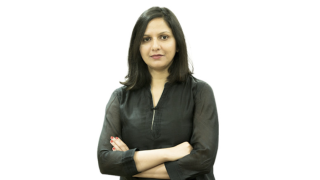It’s seven years in July since Funke Opeke first realised her ambition of creating a broadband cable along the west coast of Africa.
Opeke is a Nigerian electrical engineer who worked in the US for 20 years before leaving Verizon Wholesale in New York in 2005 and returning home to join African mobile operator MTN. She then found local funding for MainOne to build a broadband cable from Seixal in Portugal to Accra in Ghana and onwards to Lagos in Nigeria.
Back in 2010 her plan was to continue driving the cable from Lagos as far as South Africa, but there are rival cables that do that now, and MainOne has shifted its focus to become a data centre operator and cloud services company – focusing, at least for now, on Nigeria.
“We realised we had to invest in the ecosystem to support better adoption and that has meant a variety of things,” she says. “It’s meant investing in terrestrial fibre and points of presence across the country so we can get our services closer to some of the smaller internet service providers and businesses.”
Second data centre
The company already runs a data centre in Lagos, Nigeria’s commercial centre, with 600 racks, and now it’s planning a second in Nigeria, and is looking at other countries in west Africa.
“We’re looking at a plan for a second data centre in Lagos now,” says Opeke. “We own the land and we’re doing the conceptual design. I’d like to see it in service in 2019.” The new site is at Sagamu, a city about 75km north-east of Lagos, Nigeria's commercial centre.
“That gives us access for people but also gives geographical diversity.” The plan is to use a modular approach, is stages of 200 racks, to install 600-800 in all.
But then she’s looking at opportunities in two Francophone countries, Côte d’Ivoire, just to the west of Ghana, and Senegal, further along the coast.
New licences
So far MainOne doesn’t have subsea cable connections to either Abidjan in Côte d’Ivoire or Dakar in Senegal, but the company is discussing licences with the authorities in both countries, she says.
Then she’ll start looking at data centre opportunities in both, as well as in Accra, the capital of Anglophone Ghana, where the cable already lands.
Landing the cable in these two extra places will “give us more opportunity to put in data centres in Abidjan and Accra, though I’m not sure about Dakar – even though Dakar is claiming the role as the capital of Francophone Africa.”
An Accra data centre will be smaller than the facility MainOne already has in Nigeria, “but multinationals have established a presence in Ghana”, so it seems a serious possibility.
And at the same time Opeke is looking east to Kribi in Cameroon, where MainOne established a link at the start of 2016 via the 1,100km Nigeria-Cameroon Submarine Cable System, which runs from Lagos. In Cameroon “there’s interest in data centres too”, she says.
Kribi, incidentially, is the landing point for the planned 6,000km South Atlantic Inter Link cable from Fortaleza, Brazil. And Fortaleza is also the planned landing station for a number of cables to the US and Angola – giving MainOne valuable international links, particularly across the Atlantic Ocean to the Americas.
Internet exchange
A significant step forward in MainOne’s pursuit of the enterprise business came earlier in 2017 when it partnered with the operator-neutral Internet Exchange Point of Nigeria to expand the peering of internet transit traffic within Nigeria.
At the same time it expanded its enterprise offerings by launching cloud-based Microsoft services. The product, called SME-in-a-Box Pro, is designed to bring to small and medium enterprises in Nigeria tools such as Office 365 and Exchange Online, packaged along with broadband communications from MainOne.
Opeke described it at the time as “a welcome product for small businesses who require tools that enable their ability to scale up”. She said that SMEs will be able to subscribe to the online products in local currency rather than US dollars, with support from MainOne staff in Nigeria.
Today, asked whether MainOne has developed as she had hoped back in 2010, she is frank: “Yes and no. We have established a strong presence in the market but it’s not gone as fast as we would have liked.”
She blames “the macroeconomic situation across the continent” and the need for “a mixture of regulations and incentives to stimulate growth of the internet”.
Opeke points out: “In advanced markets you have programmes to bring broadband to homes. We don’t have this. That makes it more of a challenge. We need more collaboration and governments need to do more to create a more enabling environment.”





